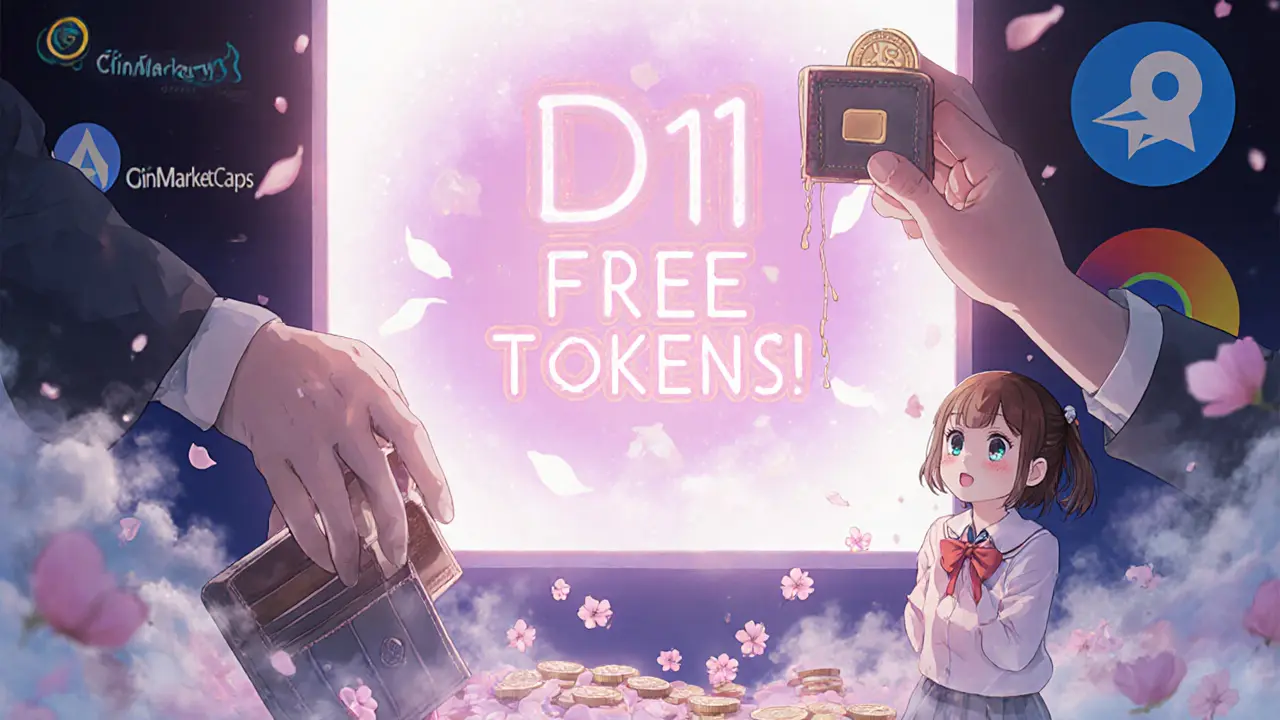DeFi11 (D11) has a circulating supply of zero tokens, making any claim of a CoinMarketCap airdrop a scam. Learn why this fake airdrop is dangerous and how to avoid losing your crypto.
DeFi11 Airdrop: What It Is, How to Claim, and Why It Matters
When you hear DeFi11 airdrop, a token distribution event tied to a decentralized finance project called DeFi11. It’s not just free crypto—it’s a way for new protocols to build a community by giving away tokens to early users. These drops happen when a project wants to spread awareness, reward participation, or bootstrap liquidity. Unlike traditional fundraising, there’s no upfront payment. You earn it by doing something simple: using a wallet, joining a Discord, or completing a task. But not all airdrops are created equal. Some are scams. Others are legit but barely worth the gas fee. The DeFi11 airdrop falls somewhere in between—and you need to know where.
DeFi airdrops like this one rely on blockchain rewards, tokens distributed automatically via smart contracts on networks like Ethereum or BSC. They’re tied to DeFi tokens, utility or governance tokens built for decentralized exchanges, lending platforms, or yield farms. If DeFi11 is real, it’s likely offering tokens to people who’ve interacted with its platform—maybe by staking, swapping, or even just holding a specific NFT. The catch? You need to prove you’re active. Wallets with zero history won’t qualify. And if the project hasn’t launched its mainnet yet, that’s a red flag. Most real DeFi11-style airdrops happen after a testnet phase or a public beta. Look for proof: a live contract address, verified on Etherscan or BscScan. If all you see is a tweet and a Discord link, walk away.
What makes this different from other airdrops? DeFi11 isn’t another meme coin with a rabbit or dog logo. It’s trying to solve a real problem: making DeFi simpler for newcomers. That’s why it’s targeting users who’ve tried other platforms but got lost in the complexity. If you’ve used PancakeSwap, tried a yield farm on BNB Chain, or even just claimed a DGMOON or ADAPad airdrop before, you’re already halfway there. The DeFi11 team isn’t looking for whales. They want people who’ve dipped their toes in. And if you’ve done that? You might already qualify.
Don’t get fooled by fake claim portals. Real airdrops don’t ask for your private key. They don’t ask you to send crypto to "unlock" your tokens. If it sounds too easy, it’s probably a trap. Check the official website. Look at the token contract. See if anyone’s traded it on a real DEX. And if you’re still unsure? Wait. There’s always another drop coming. But if DeFi11 is legit, and you’ve done your part? Those tokens could be worth more than the gas you spent to claim them.
Below, you’ll find real guides, verified links, and honest breakdowns of what’s working in the DeFi airdrop space right now. No fluff. No hype. Just what you need to know before you click "claim".

